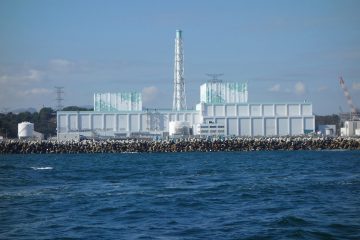
Earlier this month, Japan officially announced its decision to discharge radioactive wastewater from Fukushima Daiichi nuclear disaster that occurred in 2011 into the Pacific Ocean. To many environmentalists, this is a destructive move towards another environmental catastrophe in the Pacific region. However, this action not only impacted our already crippling ecosystem, it further escalates conflicts between Japan and its neighbor nations.
According to Japanese officials, this decision to dump the nuclear wastes into the Pacific Ocean was made after a great amount of evaluation and consideration. After diluting the nuclear waste and discharging them for a long time, the Japanese government is now convincing the general public that this treated nuclear waste is safe through the use of green mascots and credible support from American scientists. But this is yet another act of injustice as Japan failed to seek approval or international consensus among the impacted population.
International disagreement and dissatisfaction escalated to another new level as the video of a mayor refused to drink the treated nuclear waste after making claims such as “this water is safe to drink”. This statement along with his refusion to drink the treated water created further chaos and doubt towards Japan’s decision to harm the Pacific region and its inhabitants. One of the activists of the Nuclear Free and Independent Pacific movement said “We need to remind Japan and other nuclear states of our Nuclear Free and Independent Pacific movement slogan: if it is safe, dump it in Tokyo, test it in Paris, and store it in Washington, but keep our Pacific nuclear-free”.
After this statement was announced, numerous other environmentalists joined this peaceful protest towards this plan, however, the linkage in Fukushima is creating a more and more negative impact on the domestic population. This forces the Japanese government to act swiftly and decisively towards the dumping of their nuclear waste. This not only raised anger among the Japanese population who depends on the Pacific for living, but it also raised anger and grief among the neighboring nations such as China and Korea. This escalated the negative relationship between Japan and these two Asian nations.
Ben K., a biology student at AISG, said “this action of the Japanese government is unjustified, and it raised many noticeable global issues to our Pacific ecosystems. However, many of us are still unaware of the catastrophic consequences that will follow.”
Living in an environment with nuclear harm means continuous irradiation of the ecosystem, with many of the population who were victims of nuclear disasters facing maladies such as lymphatic cancers, thyroid and reproductive diseases. With their traumatic experiences with the disaster of the past, these victims personally experienced the negative impact of nuclear harm. For now, many of them are asking for further reports on the treated water as well as the predicted aftermath of the harm that it will bring to our Pacific habitats.